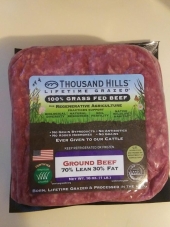posted 15 years ago
I think profitability depends greatly on the scale of the CSA...I think a CSA share should cost no less than $25 per week for a box sized to feed a family of four...profits are realized when you have amassed all the tools and equipment you need to operate the CSA, including hoophouses, tractors/tillage eqpt. and stuff like cold storage and irrigation...so if you are building your farm's infrastructure via CSA revenue, it will take a few years to see profit (and you may not want to factor in labor hours at first). A good big successful CSA could be developed sooner if you have interned on a high quality CSA farm for a couple of years first, and start on good fertile ground...and have the clear thinking required to plan and run a very complex system that requires many months of succession planting to keep supply up. I didn't do it that way! I made lots of beginner errors, and after three seasons of sticking with it am finally seeing the light at the end of the tunnel in terms of being able to produce a good box of food every week in a crazy tough climate on sad soil for almost five months! I started out all dreams and ambition, and ate alot of humble pie over and over the first couple of years...thankfully, as fate would have it, I was never able to fill the target number of shares (20) those first couple of years...I started with five, and doubled it the second year, and was quite overwhelmed even with that! I come from a food service background, so finding that what I was producing was disappointing my customers became a huge source of stress and anxiety...not fun! My strategy currently is to produce alot of the staples that people are familiar with cooking, and minimizing the oddities that us growers are fascinated by...this has increased my customer satisfaction a ton. All that said, I receive on average more of the food dollar compared to the value of what I grow this way than selling wholesale...but I make more of that dollar doing farmers markets, though CSA is very close. My thoughts are that I am not trying to short sell what I grow by selling with CSA...but I'm willing to give those members around a 10% discount over market price since they pay up front, and they also share my weather/pest risks...and if I have a bad week or two like this year because of weather events, I try pretty hard to make that up later. I also love the fact that my CSA income is a large chunk of cash up front. It allows me to buy infrastructure stuff in cash, rather than financing stuff that costs alot, or scraping together the money over many months. I think my goal is 125 or so families...at that point, my family could feasibly be supported by the farm, as in we could pay our bills and cover the necessities. Other sales from markets or to restaurants would be additional income...as well as offering a winter CSA, which I hope to be able to do in the next couple of years. I have worked off farm though for the first couple of years...and this year still have some off farm income coming in, and my partner works a full time off farm job, mainly because the quality of our soil is not good enough to allow us to get big fast...we have to make fertility wherever we want to grow produce, and have done much of that so far by hand...super taxing and inefficient...though it works...and we've had to make sure to cover the mortgage! One last thought...my CSA customers LOVE the quality of the food...and the happiest of those customers are the KIDS! Now that is priceless...
Farmer at Cloud Nine Farm, located at 5300' elevation, on Sagebrush Steppe, northeast of Bridger Mountains in the Shields Valley of Montana. We do market gardens, four season growing, build earthworks, plant food forests, raise livestock and poultry, grow and sell plants and seeds, host WWOOFers, and more. Find our farm on facebook!

















 1
1












 1
1








 1
1
















 2
2













